
There is a role for everyone as a CFA volunteer. Not all roles in a brigade require you to attend an emergency. There are operational roles and support roles in each brigade.
Many volunteers find that operational roles - responding to emergencies like fires and rescues are highly rewarding and give them valuable new skills.
Our volunteers in support roles make a huge contribution to getting the brigade out in the community through fundraising or safety education. They’re also crucial to help keep the brigade operating and well managed.
At some brigades, volunteers may choose to do an operational and a support role.
Young people can also volunteer with CFA. The Junior Volunteer Development Program (JVDP), also known as Juniors/Junior Brigade, aims to introduce young people 11-15 years to CFA by providing them with the opportunity to become good fire safe citizens while engaging them in activities that, amongst other things, build their self-esteem and self-confidence.
At the age of 16, young people can become a volunteer as outlined above.
Firefighting and Emergency response roles (Operational Roles)
Firefighters (operational volunteers) respond to incidents where risks are posed to life and/or property. This may include:
- Responding to wildfires – such as grass fires and bushfires
- Attending 'structural fires' – such as fires in homes, buildings and sheds
- Attending road accident rescues
- Assisting with other emergencies, including floods.
- Helping with animal rescue
- Attending incidents with hazardous materials
- Managing vegetation – such as fuel reduction burns
- Managing fire equipment
View more information on operational volunteers
Victorian communities and environments are different, so each brigade is different in the types of incidents and the volume of calls they may respond to.
Operational volunteers must:
- complete General Firefighter (GFF) training before attending incidents, which can take up to six months
- live or work close enough to be able to get to the brigade and the incident in a safe and timely manner. Some brigades allow flexible options such as seasonal or surge volunteering – check with your desired brigade directly.
- attend regular training sessions, brigade meetings and other brigade events
Many operational volunteers also undertake support roles.
hide
Meet Nicki Lund, Eildon Brigade
Nicki Lund has led Eildon Brigade as Captain for 9 years. With their Fire Rescue Boat, this brigade is one of a few in Victoria that can respond to houseboat fires.
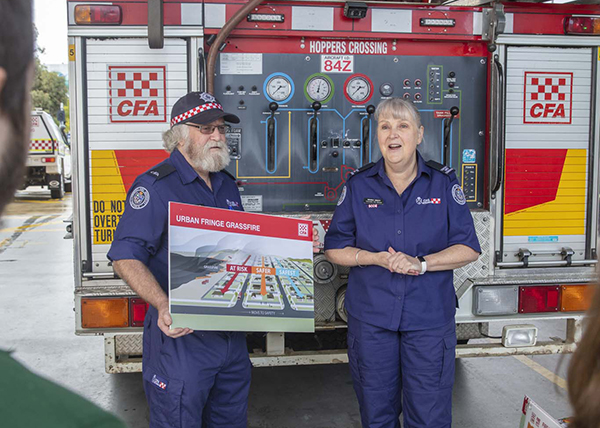 Support roles (Non-operational)
Support roles (Non-operational)
You don't have to fight fires directly to provide vital support to our brigades. Our brigades have many members who are looking to contribute with the skills they have without having to attend emergencies.
All our members – both support and operational attend brigade meetings and other brigade events as valued members of the team.
See the various support roles
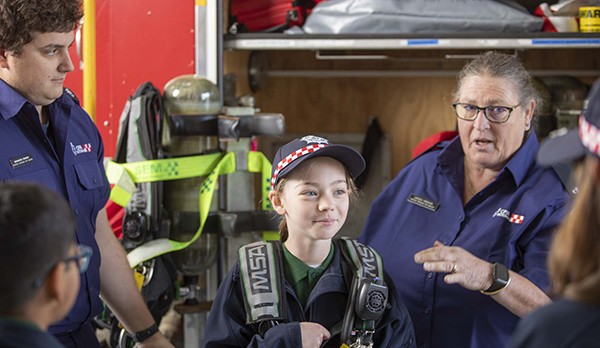
Community Safety & Engagement
Engagement and education roles help community members understand what to do when an emergency strikes. You might be doing school visits, running community preparedness workshops or door-knocking with information in your community about the role of CFA.
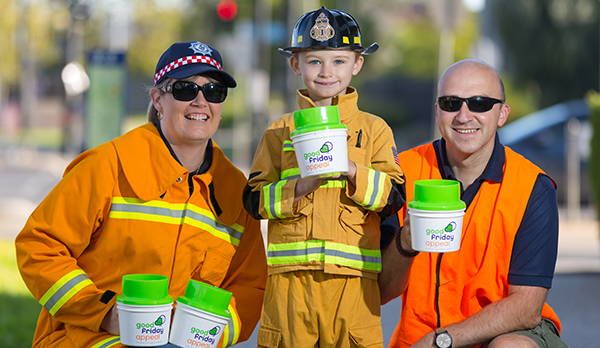
Community Events, fundraising and activities
Community event coordinators help raise the profile of the local brigade in the community by running activities such as Brigade Open days, Community BBQs and fundraising events.
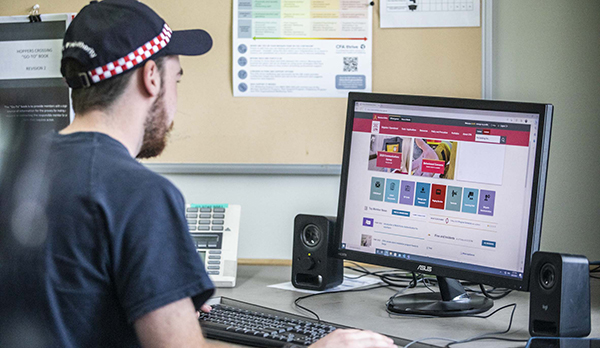
Media, social media and promotion
Got the skills for a good photo, a ‘likeable’ social post or a great news story? Brigade media officers can help get the word out in their communities about what their Brigades do and important fire safety messages.
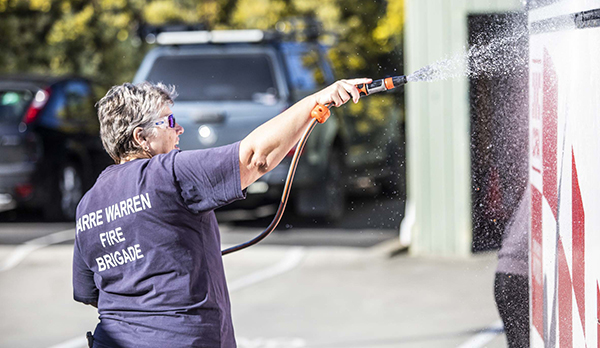
All-rounders
Some brigades also need extra hands to make events happen, or help out with catering, or with fundraising. Often called support roles, these are ‘all-rounder’ roles that suit people looking to lend a hand in whatever capacity is needed.
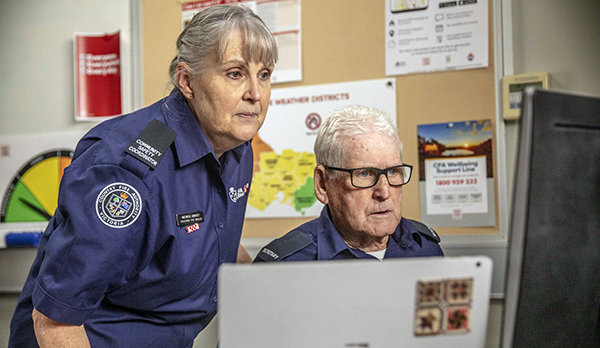
Business Support Roles
Our brigades need people supporting them to run like clockwork. Business support roles, such as financial officers, administration support, meeting coordinators, IT or logistical support help behind the scenes to ensure that our members are ready and able to turn out to emergencies.
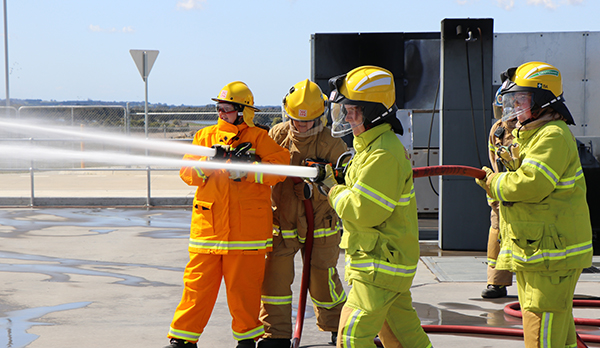
Brigade training and equipment maintenance
Brigade Training leaders ensure volunteers have the skills and knowledge to confidently go to their next call out. Equipment maintenance roles help ensure Brigade trucks, hoses, reels and other rescue equipment is ready to go at any time
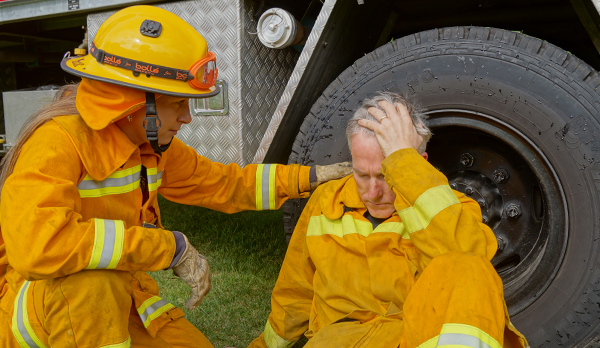
Health and Safety Managers
The health and safety of All our volunteers is our highest priority. Health and safety roles in the brigade ensure this is at the front of everyone’s mind when they attend an incident, so everyone comes back safely.
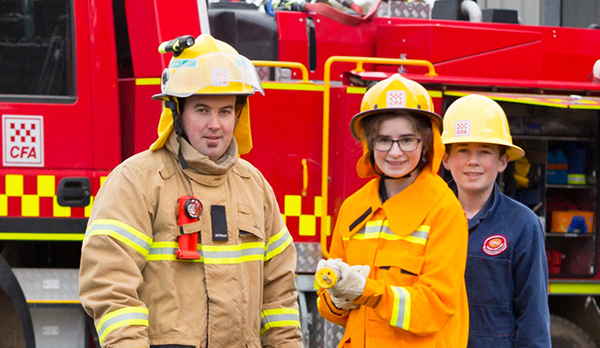
Junior Leader
Junior Leaders are brigade members aged 18+, who have a passion and dedication to the development of young people in their community. They are responsible for leading and delivering the Junior Volunteer Development Program (JVDP) for 11-15-year-old members.
Meet Michelle Abbott, Truganina Brigade
Michele Abbott is a support member of Truganina Fire Brigade performing roles in Community Safety, Multicultural liaison and operates in staging areas at bushfires.
Brigade roles FAQs
Can I do both firefighting (operational) and support (non-operational) roles?
Firefighters (operational volunteers) are able to also undertake non-operational roles (support roles) at their brigade.
Support (non-operational) volunteers do not have the training to attend incidents or fires, so cannot do operational roles.
It's possible to change your membership status between operational and non-operational.
One volunteer can take on multiple roles, depending on the brigade’s needs and the amount of time the volunteer has.
Do firefighters (operational volunteers) just attend incidents?
Brigades run regular training, meetings and events. Whilst firefighters (operational volunteers) may have a primary focus on responding to incidents, they can still participate in a range of other activities, including preparedness, prevention, community education and engagement, vehicle and building maintenance etc.
Some operational volunteers may spend more time training and volunteering in ways other than attending incidents.
Firefighters (operational volunteers) can undertake extra support (non-operational) roles at their brigade.
Can I be a Volunteer only for major bushfires?
Brigades need volunteers who are able to provide support and respond to incidents throughout the year, not just in times of major fires. Some brigades allow seasonal volunteering to assist during their fire season. It is best to speak to your local brigade about this.
All firefighters (operational volunteers) are required to be fully trained before attending any incidents. This includes completing General Firefighter training, which can take up to 6 months.
hide